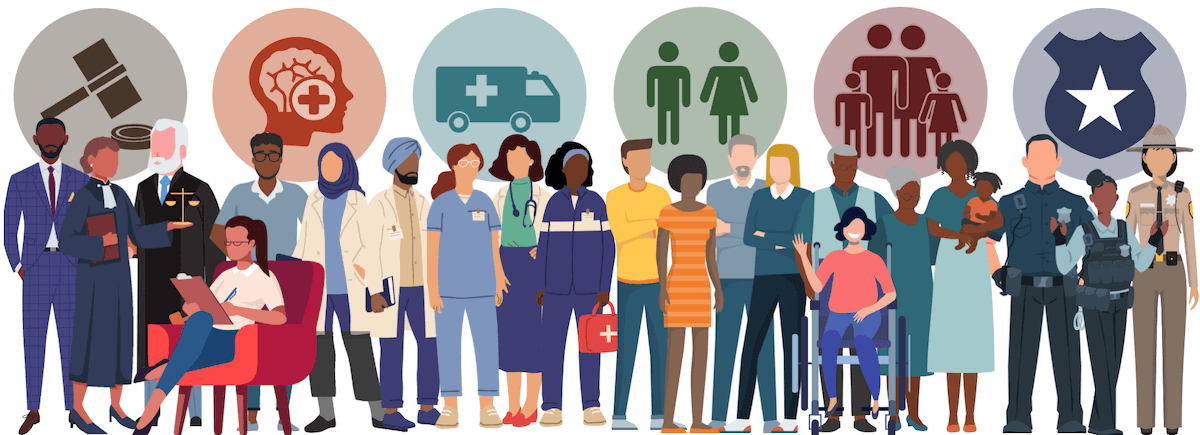Assisted outpatient treatment toolkit bridges the gap of mental health treatment law and implementation
In partnership with Michigan’s Mental Health Diversion Council, the Center for Behavioral Health and Justice (CBHJ) has launched an Assisted Outpatient Treatment (AOT) Toolkit designed to provide Michigan courts, mental health providers, hospitals, individuals struggling with mental illness, families and advocates, and law enforcement the resources they need to effectively utilize AOT.
The AOT toolkit offers specific guidance for key components of the system, answers frequently asked questions, and aims to provide general information about the process and criteria for AOT orders.
Many individuals living with SMI do not adhere to outpatient treatment recommendations for a variety of reasons, increasing their risk for suicide and self-harm, violent behavior, substance misuse, insecure housing, high utilization of ERs, and frequent contact with law enforcement. This leads to high rates of inpatient psychiatric hospitalization and incarceration.
 “Sending citizens with behavioral health and substance use disorders through the revolving doors of jails, courts and hospitals must stop.” said the Wayne County Probate Court Chief Judge Freddie G. Burton, Jr. “The only way to make effective change is through collaboration.”
“Sending citizens with behavioral health and substance use disorders through the revolving doors of jails, courts and hospitals must stop.” said the Wayne County Probate Court Chief Judge Freddie G. Burton, Jr. “The only way to make effective change is through collaboration.”
AOT is a legal mechanism for providing outpatient treatment to individuals living with severe mental illness (SMI) whose non-adherence places them at risk for negative outcomes. AOT orders work by compelling the recipient to receive specific treatment that will prevent their condition from worsening, committing the mental health system to provide treatment, and creating opportunities to intervene before an individual reaches a crisis.

Although Michigan has received an “A” grade from the Treatment Advocacy Center for its laws related to psychiatric civil commitment, it received a “D” for its implementation of programs to divert people with SMI from the criminal/legal system. AOT is one of many tools that exist in State law to slow the revolving door of untreated mental illness, hospitalization, and incarceration for some of the most vulnerable Michiganders, yet it remains underutilized. This toolkit strives to provide tools to improve the implementation of AOT and improve our state's response to mental illness.
Every part of the AOT system of care plays a uniquely important role in ensuring individuals receive high-quality services in the community and work toward transitioning back to voluntary care. When systematically implemented and adequately resourced, AOT can dramatically reduce hospitalization, criminalization and other adverse outcomes for its target population.
The toolkit was released on Friday, July 1, with more content being added throughout the summer. The CBHJ is seeking feedback about the toolkit contents and testimonials about experiences with AOT orders, which can be submitted on the CBHJ’s website. Visit the toolkit online to view all the resources and learn more.
About the Center for Behavioral Health and Justice: The Wayne State University School of Social Work Center for Behavioral Health and envisions communities in which research, data, and best practices are used by multiple partners to enhance the optimal well-being of individuals with mental illness and/or substance use disorders who come into contact with the criminal/legal system. Learn more
About the Michigan Mental Health Diversion Council: Created by Executive Order 2013-7, the Mental Health Diversion Council was created in the Michigan Department of Community Health to advise and assist in the implantation of the Diversion Action Plan and provide recommendations for statutory, contractual or procedural changes to improve diversion. The Council is charged with “reducing the number of people with mental illness or intellectual or developmental disabilities (including comorbid substance addiction) from entering the corrections system, while maintaining public safety”. Learn more.